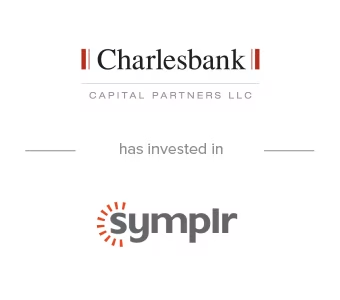
Article - June 6, 2024
Healthcare Revenue Cycle Management: Market and M&A Trends
According to recent research by Sage Growth Partners and Harris Williams, healthcare organizations are focused on financial stability, yet most assess their revenue cycles as below average. This challenge for health systems is creating new opportunities for M&A investors.
Below, senior professionals from our Healthcare & Life Sciences Group and Sage Growth Partners share the current state of revenue cycle management, factors negatively impacting hospital and health system revenue cycles, where organizations are planning to invest to improve their revenue cycles, and what M&A investors should consider as they seek opportunities in the space.
Revenue Cycle Challenges Persist
According to the survey, fewer than half of the 115 survey respondents say their organization’s revenue cycle has improved since 2019, while one in five indicate it has become worse. Healthcare leaders say that workforce shortages, an overall decline in the financial climate, and operational process challenges are all contributing to the worsening of revenue cycles.
Those from organizations that have improved their revenue cycle since 2019 say operational process improvements, technology advancements, and workforce investments are the principal drivers of that success. As such, many healthcare providers are planning to invest in RCM and related technologies, supporting strong long-term growth and drawing the attention of M&A investors.
Indeed, most survey respondents expect an increase in the total RCM budget allocated to technology solutions. Many health systems and hospitals are also investing in new technologies to improve the revenue cycle, including AI, robotic process automation, and automated coding.
Strong Investor Demand for Innovative RCM Providers
Against this backdrop of revenue cycle challenges, the U.S. healthcare RCM market, worth roughly $140 billion in 2023, is expected to continue growing at low double digits over the next 10 years. In addition to strong demand for more effective RCM solutions, several trends are driving this steady trajectory and creating heightened investor interest in the space.
“The improvement in integrated technologies—including AI—will continue to enhance the value outsourced vendors can deliver to the market,” says Tyler Bradshaw, a Harris Williams managing director. “Existing platforms also have ample runway for long-term expansion by widening their service offering. High-value segments of the RCM workflow, like denials management and complex claims, offer substantial potential.”
“Health systems and physician groups value the operational improvements and tangible ROI the best RCM vendors deliver,” says Dan Linsalata, a Harris Williams managing director. “Investors appreciate that high level of value. RCM’s vast market and outsized growth potential for differentiated providers are also highly appealing to M&A investors.”
Due to these factors, the RCM vendor landscape continues to be reshaped by strong M&A activity. In fact, there have been over 200 platform and add-on transactions during the past three years.
“RCM has risen to the top of the thematic priority list for healthcare investors over the last 18 to 24 months, and M&A volume has increased materially,” notes Linsalata. He adds that while investors are evaluating opportunities across the full continuum, they are most focused on RCM businesses with sustainable differentiation, whether it’s a focus on a specific care setting, specialty, or unique technology capabilities.
In particular, Linsalata says differentiation is boosted by technology that enhances efficiency, reduces errors, and optimizes revenue capture while supporting data analytics and artificial intelligence. Investors are also focused on end-to-end RCM solutions that cover the entire patient financial journey, creating unified platforms that streamline workflows, reduce costs, and improve overall financial performance. Mastery of regulatory compliance and data security is important too: Evolving healthcare regulations and cyber threats will place additional emphasis on compliance and mitigation of financial and data security risks.
Bradshaw highlights an advanced approach to AI as an important differentiator: “Businesses that have already invested in AI to get in front of the risk and those that focus on more complicated parts of the RCM workflow have attracted significant attention.”
In addition, Bradshaw says strategic buyers will prioritize RCM companies with meaningful and defensible recurring revenue, sophisticated and scalable technology infrastructure, an organically expanding client base, actionable opportunities for expansion through the new services or geographies, and continued deployment of innovative solutions.
A Key Solution to a Persistent Challenge
“This and other research we’ve conducted reinforces the fact that that hospital and health system C-suite leaders rank growing revenue as their top strategic investment for the next two years and consider financial sustainability and lowering costs of care among their greatest challenges,” notes Stephanie Kovalick, Chief Strategy Officer at Sage Growth Partners. “Ongoing investments in revenue cycle technologies will be essential to overcoming those obstacles.”
Indeed, despite hospital and health system leaders ranking financial stability as their top strategic priority, today’s revenue cycles are not fully optimized. Fewer than half, in fact, have improved in the last five years. Persistent workforce shortages have only contributed to the problem. Yet survey respondents are optimistic about the promise of innovative RCM solutions to improve their revenue cycles and plan to spend accordingly.
That strong demand has the attention of M&A investors, who see a unique opportunity to deploy capital against a long-term set of opportunities within a massive and essential industry. The best opportunities will exhibit several key differentiators: better technology, broader solutions, an advanced take on AI, and strong organic growth potential.
To further discuss revenue cycle management M&A opportunities within healthcare, please contact our senior professionals.
About the Research


To better understand the investment potential within revenue cycle management (RCM), Harris Williams partnered with Sage Growth Partners to conduct independent research. The Q4 2023 survey included C-Suite executives, CFOs, revenue cycle executives, CIOs, and other finance, IT, and operations professionals. All respondents were screened to ensure familiarity with their organization’s revenue cycle processes.















